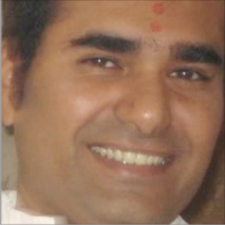[The article was first published on LinkedIn here]
Hassled journeymen and harried first-time entrepreneurs have one thing in common: They are ripe for accepting direction, or assurance, from any seemingly informed soul who is eager to stop and listen to them. And as their luck would have it, most people do want to play guide!
Overstatements aside, many first-time entrepreneurs, in their natural enthusiasm, tend to lap up advice of readily accessible experts – without first evaluating the guidance against the necessities of the overall contexts.
Not that seasoned pros are not known to fall prey to such quick fixes. In his book Our Films, Their Films, celebrated Indian filmmaker and Academy Award winner Satyajit Ray narrated an interesting anecdote about the propensity:
“I had planned on a medium close-up with a normal lens. […] We had with us on that day a friend who was a professional cameraman. While I pondered over the shot, I had a fleeting glimpse of our friend fiddling with lenses. What he had done was take out normal lens with a focal length. ‘Just take a look at Durga (the actor who was to be captured) with this one,’ he told me, as I came to have a look through the viewfinder. What the finder now revealed was an enormous close-up of Durga’s face, back-lit by Sun… It was irresistible! I thanked my friend for his timely advice and took the shot.
A few days later, in the editing room, I was horrified to discover that the scene simply did not call for such an emphatic close-up. […] This taught me, at one stroke, two fundamental lessons of film making: (a) a shot is beautiful only if it is right in its context, (b) never listen to advice on details from someone who does not have the whole film in his head as clearly as you do.”
Note that the impracticable advice in the example was given to Ray not by a novice, but by a seasoned professional who not only knew the craft, but was also informed and aware about the various possibilities within that.
Clearly, utility of an advice isn’t a linear function of the excellence of the adviser alone. The business of counseling operates upon the GIGO principle of computing: If you put semi-context in, you get semi-utility out.
First-time entrepreneurs, however, possess an inherent inertia to sharing business details with external experts – because they are perennially mortified about someone ‘stealing their idea’. Remember, we are not talking of a scenario that would have a Y Combinator in the mix.
Sounds like a catch-22? No; believe it or not, it is a good place to be in. No edifice of entrepreneurship has ever been built upon a single resource of expert guidance anyway.
If there is a person who must know the absolute configuration of your business idea – lock, stock and 360 contextual barrels – it is only you, my first-time entrepreneur friend (includes equal co-founders).
Don’t even try to invest resources into explaining the complete nuts and bolts of your idea to an external expert. On the contrary, you should turn the ‘Blind Men and the Elephant’ story around and present, to chosen experts, every major limb of the idea as a complete animal. The key lies in first choosing the expert well and later providing allied context to every standalone counsel of those experts; thereby building a launch pad that has all its pillars on a strong footing.
Recently a childhood friend and a first-time entrepreneur started restaurant business in my home city. I know nothing about the business, but I know a fair bit about the city and its idiosyncrasies related to food. So I was able to share definitive views about the specific social-political challenges that the various neighbourhoods could pose to his proposed venture.
He did not involve me in any other aspect of his venture – even though I have been running a business ever since I completed my education, while he, as I mentioned earlier, is a first-time entrepreneur.
It seems he believed that my strong background (I was the first one to publish an English print magazine about the city) and understanding of the local society’s attitude towards food was ofgreater unique utility in his context than my experience of running a business per se.
A trendy hangout is now up and running. I see that his final selection of the place agrees with my assessment.
So, the next time you plan to seek advice from an expert for your proposed startup, opt not for experience and knowledge, which are a given, but for a unique insight that can be applied to your context. Fortunately, the only person who can advice you about that first pursuit is you.
Wish you luck for your first venture!






